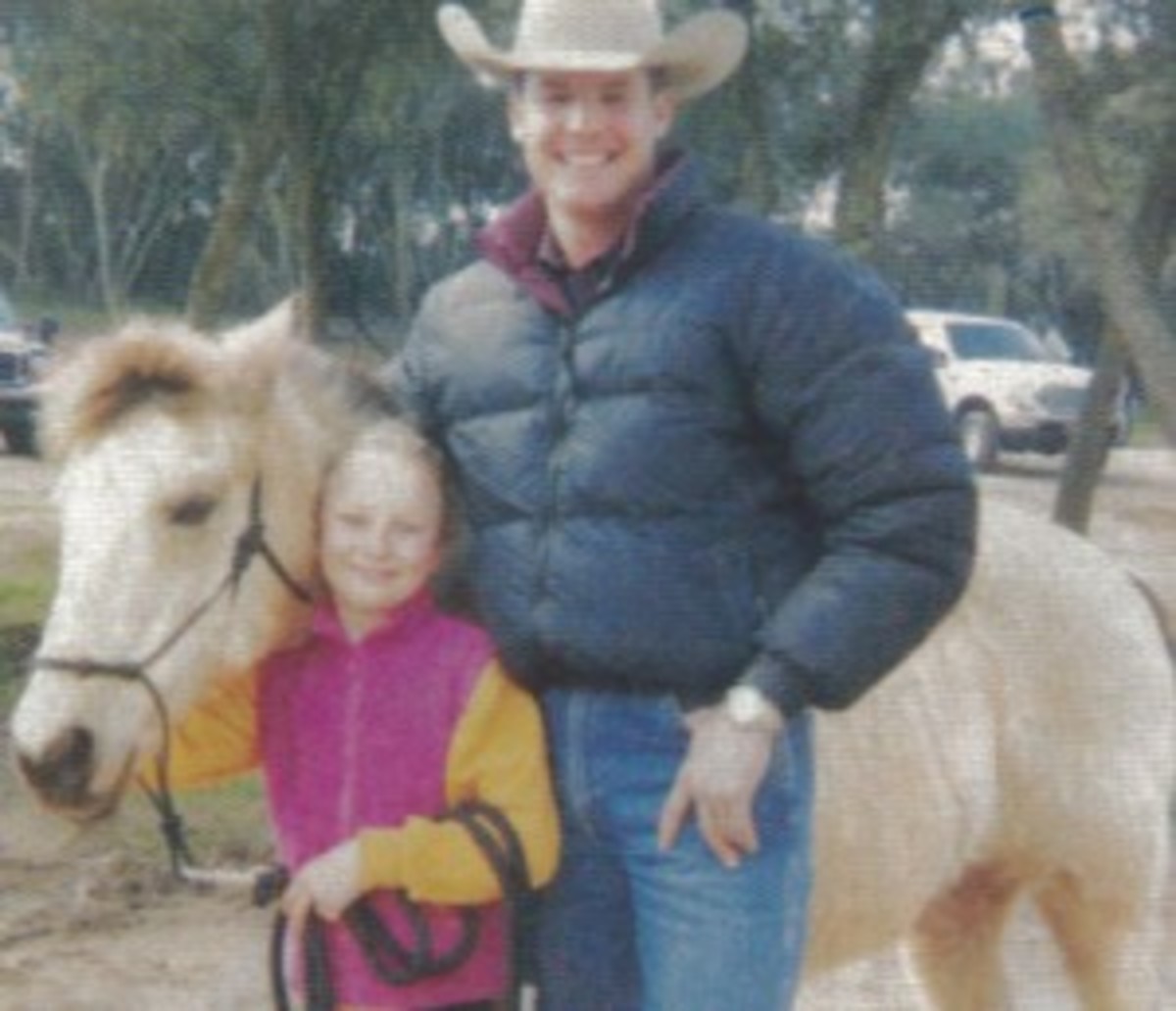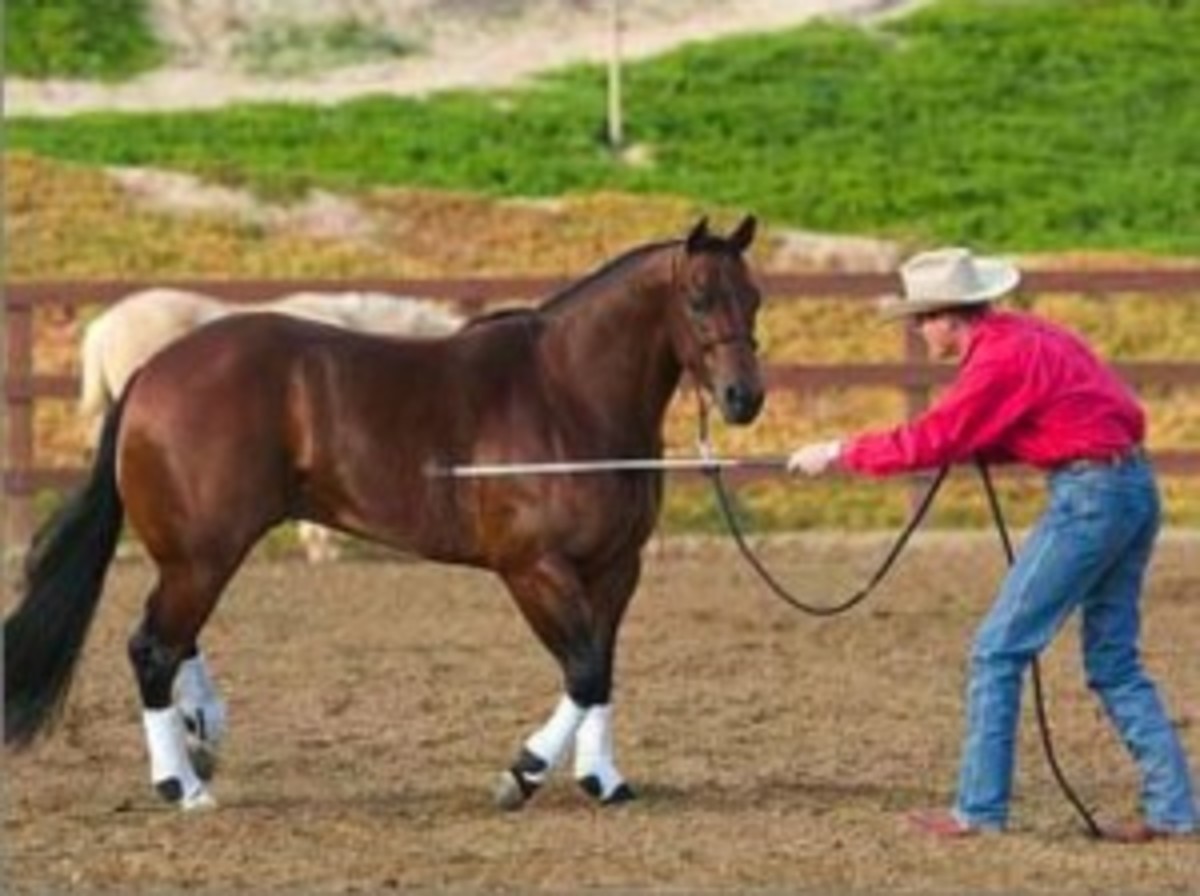It was definitely an “aha!” moment. The time was early spring of 2004; the place was a Clinton Anderson horsemanship clinic in Ione, California. My daughter Sophie, then 9, was participating in the clinic, along with her pony mare, Diamond.

Over those three days, she learned how to do many of Clinton’s groundwork exercises, and by the end of the weekend she was handling her pony with new confidence and assurance.
Even better, Diamond was looking at her small owner with a new expression on her face, one that said, “Yes, ma’am! What next?”
As I watched one after another of the horses in the clinic gain this expression, something clicked in my head. I realized that the purpose of all this groundwork that clinicians are so fond of isn’t to make your horse easier to lead, or back up, or move from side to side, or longe——though all these improvements will result as well.
No, the real purpose is simply to prove to your horse that you can make him do these things. That you, not him, are in control of his feet. You become like the boss mare in a herd, commanding your horse’s respect and insisting that your instructions be followed?no questions asked.
You probably understand this concept on its surface, but do you always act accordingly, with your own horse? Or are you sometimes oblivious to the “attitude” in your own mare or gelding, and even make excuses for it?
In Clinton Anderson: Philosophy, the clinician explains clearly why this is a mistake, and why achieving ultimate control over your horse is essential. He also shows exactly what you must do to achieve that control.

And, yes, there’s a lot of groundwork involved.
As Clinton describes in the book, the right kind of groundwork leads to respect, which “is like having money in the bank.” Just as having financial resources gives you more options in life, having your horse’s respect gives you more options in your activities with him.
Trail ride in a group? Explore a new area? Try out a new discipline? With a horse that regards you as his genuine leader, you can do it.
Bottom line? Having that degree of control over your horse makes riding fun.
So although groundwork takes time and effort, the net result is a horse that looks at you with the can-do expression that Diamond gave Sophie. And that you can take to the bank.






